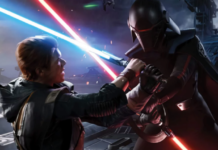It's every developer's dream: create a game for the fans without the hassles of dealing with a publisher. While in the past this may not have been possible, a growing number of developers — even some of the industry's most recognized — are turning towards crowd funding to get their game funded. Kickstarter, an online crowd funding platform, has allowed numerous developers to fund their project without having to jump through the hoops of a publisher.
Speaking to legendary designer Richard Garriott, who recently had his own RPG Shroud of the Avatar funded on Kickstarter, he told me the greatest benefit of crowd funding is not being constrained by the publisher. "Going out to the users versus a bigger publisher leaves us free and beholding to the users, not the sales department."
Garriott explained to me that his team has already been able to refine or change their planning based on user feedback because, ultimately, it's the users who are going to be playing the game. So why not give them what they want?
"When I look back at work, I think of my three favorite Ultimas — 4, 7, which was the best job we did creating an interactive world, and Online, the first great example of an MMO. In all three of those games my, quote, publisher, unquote, was against those," he told me. "When I was working on Ultima 4, my brother, who is my business partner, as well as our marketing team was like 'Richard, what are you doing? People want to go out and fight monsters, they don't want to be forced to play the role of some goody two-shoes. I think you're making a terrible mistake.'”
"I stood my ground. I felt very passionate about that direction and it worked out very well," he recalled. "In the case of Ultimate 7, I was getting tons of feedback of 'Richard why are you wasting time making this world interactive. Why would you bother flushing toilets when there's really no need. Why are you bothering?' I think that really made a world that I'm really proud of in reflection, and it's game that did well."

Garriott went on to tell me that with Ultima Online there had been no successful large scale MMO previously, "so I had a hell of a time getting that game funded and supported. No one believed there was a market for it, much less that it would be a good game to play. And yet that worked out too."
But not everything has worked out well for Garriott. In fact, two games which he admits he made the most mistakes on, Ultima 8 and Tabula Rasa, he said publishers had a bigger role. "I received an enormous amount of critical feedback from my publishers and I really worked hard to try to appease them. Even though in my heart of hearts I was not confident that feedback was the way to go."
"In Ultima 8 I was strongly advised to keep cutting it to make a ship date. And we shipped it, frankly, incomplete," Garriott admitted. "It was a dramatically incomplete game."
"For Tabula Rasa, we restarted the game three times in order to find a creative concept that was compatible with what we thought we should do here in the United States and what our Korean company also would support for a global concept that might work outside the U.S. By the time we really got going in any solid direction, we were already way out of position from timeframe and spending."

"I'm not trying to blame those companies," he clarified. "They were actually trying to give advice they thought was right; it worked for them in their journeys for success."
Ultimately, though, it comes down to this for Garriott: "If I'm going to have to go look for money from someplace, I'd rather go directly to customers who give me feedback like, 'Dammit I want to play offline.' Okay, I can make that work for you."
Name alone won't guarantee crowd funding success; just ask former Infinity Ward strategist Robert Bowling, whose recent Kickstarter project The Adventures of Dash failed to reach its goal. Fans are beginning to speak with their wallets. If they want something, they'll support it themselves. And judging by the $2 million pledged, they want Shroud of the Avatar. Garriott's latest RPG is expected to launch in 2014 for PC, Mac, and Linux.







